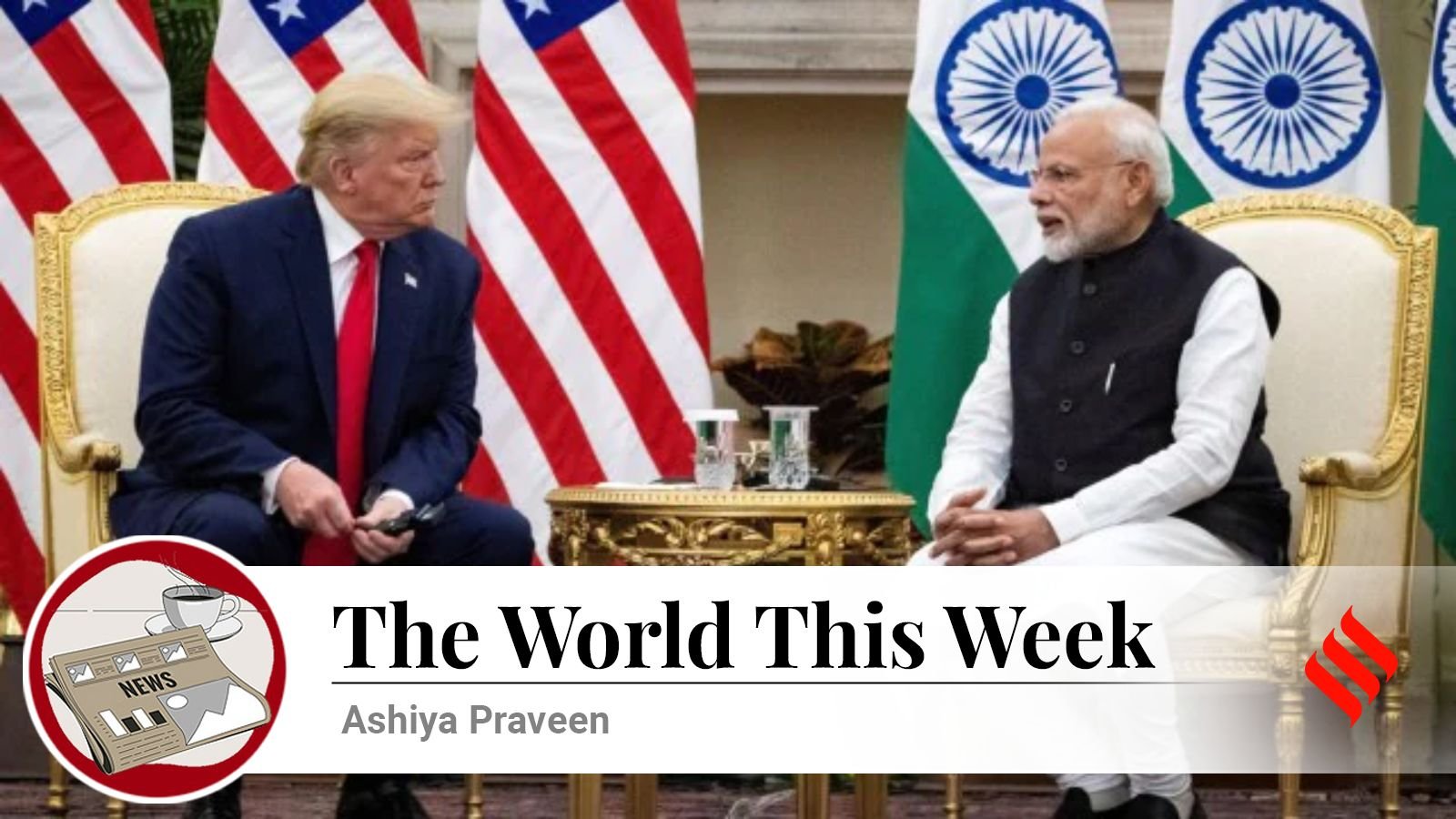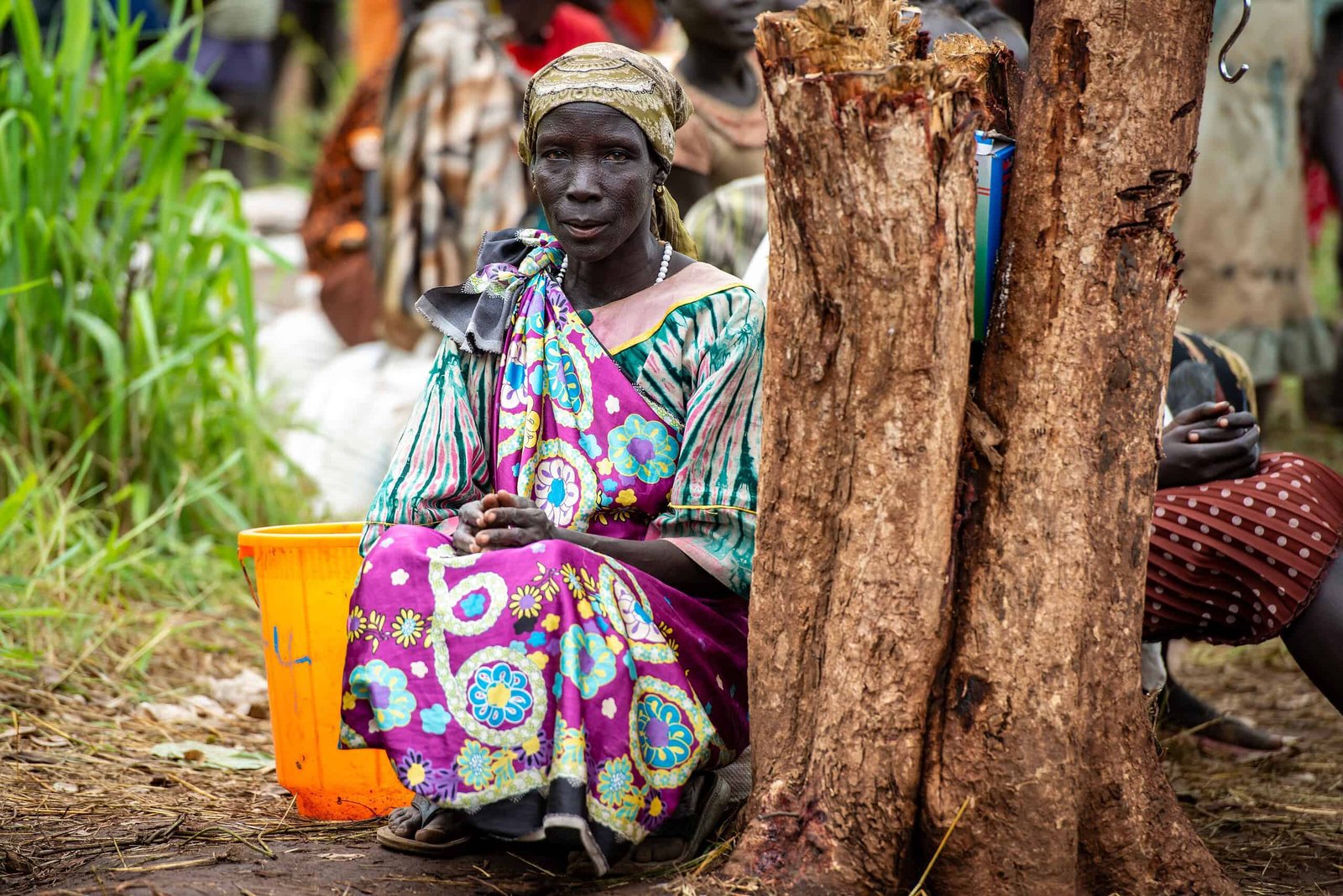As purchases of Russian oil remain a sticking point in the India-US trade deal, Delhi reiterates that its energy import decisions are guided by its national interest. In response to Beijing’s fresh curb on rare earths, Washington threatened an additional 100 per cent tariff on Chinese imports. Egypt invites India to join the Egyptian Suez Canal Economic Zone (SCZONE), and explore investment opportunities beyond traditional areas. Hamas urges the US and other mediators to pressure Israel into respecting the ceasefire agreement and ceasing attacks – here’s the weekly roundup of key global news.
Despite global headwinds arising from US President Donald Trump’s tariffs, India’s exports grew by 6.74 per cent. At the same time, the deepening US-China trade war and concerns around Beijing’s tighter control over rare-earth exports appeared to revive momentum for the stalled India-US trade deal.
Indian trade negotiators in the US are exploring a win-win solution between the two sides, but the current round of talks is not formal due to the US government shutdown. However, India’s purchase of Russian oil remains a sticking point, which has led to the US imposing 25 per cent penalty tariffs on top of the reciprocal tariffs.
Trump this week repeatedly claimed that he had been assured by Prime Minister Narendra Modi that India would stop buying oil from Russia. But the Ministry of External Affairs said it was “not aware of any conversation”.
Delhi reiterated its stance that India’s energy import decisions are guided by its national interest, and also hinted that it could step up oil imports from the US, which fell from $25 billion to around $12-13 billion in the past seven to eight years.
Trade data released for September also showed that imports from the US jumped 11 per cent while exports slipped 12 per cent. At the same time, a sharp surge in imports of gold, silver, and fertilisers also widened the trade deficit to $31.15 billion, the highest in over a year, according to data released by the Commerce and Industry Ministry on Wednesday (October 15).
India’s total exports, however, registered a 6.74 per cent growth, buttressed by gains in the UAE and Chinese markets. Exports of electronic goods surged 58 per cent, while iron ore exports to China showed a 60 per cent increase.
Story continues below this ad
In the meantime, India’s labour-intensive sectors have begun to face the impact of tariffs, with the export of textiles, jute, carpet, and handicrafts reported to have dipped 5 to 13 per cent.
Now all eyes would be on the Indian trade negotiators, alongside a potential meeting between Trump and Prime Minister Modi on the sidelines of the upcoming ASEAN Summit in Malaysia. Trump is also believed to hold talks with his Chinese counterpart, Xi Jinping, at the APEC meeting in South Korea.
US, China escalate trade war ahead of potential talks
All the while, both China and the US appear to be using similar tactics, escalating their trade war to gain an edge ahead of their potential talks. In response to Beijing’s fresh curb on rare earths, Washington threatened an additional 100 per cent tariff on Chinese imports starting on November 1 unless Beijing scraps the restrictions.
Story continues below this ad
Following Trump’s remarks that he would get China to follow suit after his claim of receiving assurance from India to stop buying oil from Russia, Beijing retaliated by saying that its purchase of Russian oil is “legitimate”.
India and China are the largest buyers of Russian oil at discounted prices that Moscow has been forced to offer after losing sales to Europe following its invasion of Ukraine in 2022.
Beijing called the US’s moves “typical unilateral bullying”, and added that “China is committed to promoting talks for peace on the Ukraine crisis”, its state-run Xinhua news agency reported. Beijing also registered its protest over the UK’s decision to add its energy companies and port operators to a list of entities sanctioned for supporting the Russian energy sector.
In the meantime, the trade war between the world’s two biggest economies seemed to have petered out as US Treasury Secretary Scott Bessent expects to meet with Chinese Vice-Premier He Lifeng next week in Malaysia to try to forestall an escalation of US tariffs on Chinese goods that President Trump said was unsustainable, according to Reuters.
Story continues below this ad
‘Palestinian question’ key to regional peace
Meanwhile, Egypt’s Foreign Minister Badr Abdelatty said on Friday (October 17) that the “Palestinian question” is the core of the conflict in the region and without solving it, you cannot talk about normalisation and make progress on the India-Middle East-Europe-Economic Corridor (IMEC) project.
Abdelatty, who arrived in India on Thursday for a two-day visit, expressed interest in Egypt joining all such connectivity projects once the situation is “conducive”, and also proposed that India join the Egyptian Suez Canal Economic Zone (SCZONE), where Russia, China, and a few other countries already have separate industrial complexes.
He also invited Indian companies to explore investment opportunities beyond traditional sectors (such as pharmaceuticals, minerals, fertilisers), targeting a vast market of at least 2 billion inhabitants that Egypt has access to through its Free Trade Agreement arrangements with major blocs, including Africa, Europe, and Latin America.
Story continues below this ad
Referring to the Gaza war, he noted how escalation could hinder cooperation and connectivity. Due to the disruption of maritime traffic on the Red Sea, Egypt suffered a loss of over $9 billion, Abdelatty said, adding, “We used to have at least 75 ships every day crossing the Suez Canal both ways. Now, it’s 20 to 30, so it dropped by at least 60 per cent.”
The October 7, 2023, attack by Hamas on Israel and the subsequent war also disrupted the IMEC project, which was launched a month before in September 2023 during the G-20 in New Delhi. The IMEC aims to extend from India across the Arabian Sea to the UAE and through Saudi Arabia before connecting through Jordan and Israel to Europe.
“When October 7, 2023, happened, and then there was escalation, everything about normalisation, about connectivity, stopped for a single reason,” the Egyptian foreign minister said, adding that the region cannot be normalised without “resolving the [source] of the conflict in the region, which is the Palestinian question”.
The Egyptian Foreign Minister was in Delhi for the first India-Egypt Strategic Dialogue, during which he met Prime Minister Modi and External Affairs Minister S Jaishankar. During talks with his Egyptian counterpart, Jaishankar also highlighted India’s historical support for Palestine and reiterated the country’s consistent support for a two-state solution.
Story continues below this ad
Calling the Gaza peace plan the “only game in town”, Abdelatty said that Egypt would work with the US and other regional and international partners to secure a UN Security Council resolution to establish an international stabilisation force to monitor the implementation of the Sharm El-Sheikh agreement on Gaza.
Hamas accuses Israel of violating ceasefire
Israel has killed nearly 30 people in Gaza since the ceasefire, while the flow of aid remains constrained because of continued closures of crossings and restrictions on aid groups. Palestinian militant group Hamas has urged the US and other mediators to pressure Israel into respecting the ceasefire agreement and ceasing attacks.
As part of the ceasefire announced last week, Hamas has returned the Israeli hostages in exchange for nearly 2,000 Palestinian prisoners and detainees. Under the first phase of Trump’s 20-point peace plan, Israel still maintains control of about half of Gaza, while the issue of Hamas’s disarmament remains murky.
In fact, the hostage exchange has been seen as an easier part of the peace plan compared to the next phases, which include issues like the disarmament of Hamas, the governance, and the security guarantee for Gaza, as well as the rebuilding of the war-ravaged enclave.
Story continues below this ad
Hamas hasn’t committed to disarmament and also rejected what it called any “foreign guardianship” of the strip with reference to an international body called the Board of Peace overseeing an interim committee of Palestinian technocrats.
In the meantime, Palestinians in Gaza are still desperate for food and water, as large-scale aid deliveries called for by the United Nations and the international community still face Israeli roadblocks, The Associated Press reported.
Israel’s war on Gaza has killed at least 67,967 people and wounded 1,70,179 since October 2023. As many as 1,139 people were killed in Israel during the October 7, 2023, attacks, and about 200 were taken captive.
Send your feedback and ideas to ashiya.parveen@indianexpress.com.
Story continues below this ad




